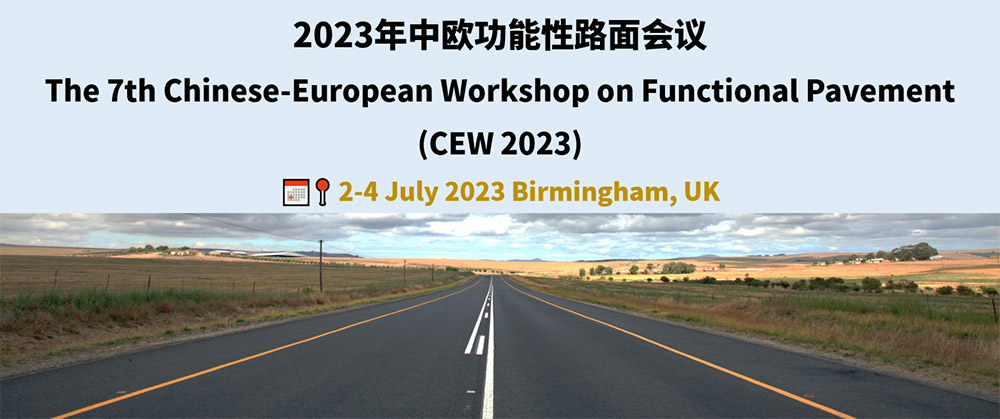Important Updates:
[1] For all participants, please fill in the registration form via the link (https://forms.office.com/e/bbrxSt9CzD) by 18 June, so that we can arrange the presentation schedule, name tages and venue for you.
[2] If you need to book an accommodation at Conference Aston-Conference Centre and Hotel, please use the following link to get a 50% discount, which is valid until 20 June. No room booking discounts will be offered after this date, so please book your room in time. https://confaston2.dbm.guestline.net/availability?hotel=CONFASTON2&arrival=2023-07-02&departure=2023-07- 03&adults=1&children=0&promoCode=CIVIL2023
The Chinese-European Workshop (CEW) on Functional Pavement was founded in 2010 to promote the activities relating to experimental characterization, advanced modelling, material development and production, design and construction of functional pavements. The workshop provides academics, researchers, practitioners and administrators from China, Europe and around the world a unique and rewarding opportunity to present new emerging ideas. The previous six workshops were successfully hosted by Southeast University, China (CEW2010), Harbin Institute of Technology, China (CEW2012), RWTH Aachen University, Germany (CEW2014), Delft University of Technology, The Netherlands (CEW2016), Changsha University of Science and Technology, China (CEW2018), and Southeast University, China (CEW2020).
Following the great success of the preceding six workshops, the 7th CEW Conference (CEW2023) will be held in Birmingham, co-hosted by Aston University and The University of Nottingham, UK. The CEW2023 will offer a unique international forum for exchanging innovative ideas and sharing the recent developments on various aspects of functional pavements, and bridging the gap between the functional and structural requirements of the pavements. It will also serve as a platform for scientific exchange, creating scientific communities in broader research fields of pavement engineering.
The themes of the CEW2023 include (but not limited to):
1 Green pavements for
circular and low-carbon economy;
2 Intelligent
pavements for future and smart cities;
3 Durable pavements
for long-life infrastructures;
4 Safe pavements for
user-friendly build environments.

